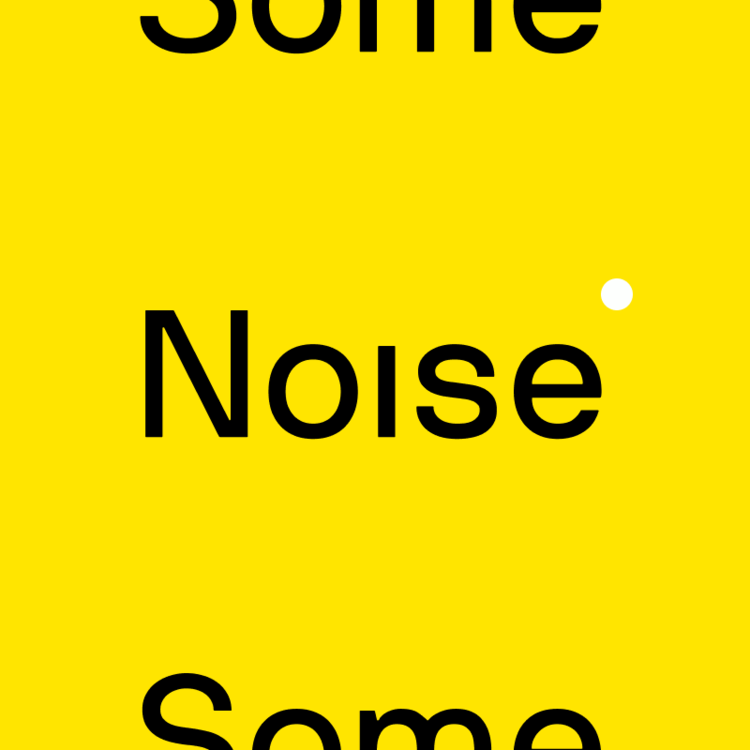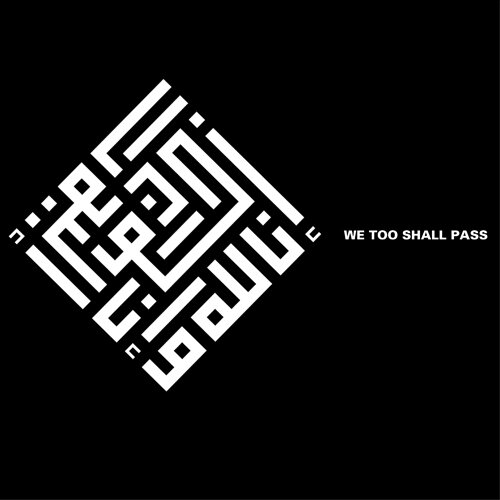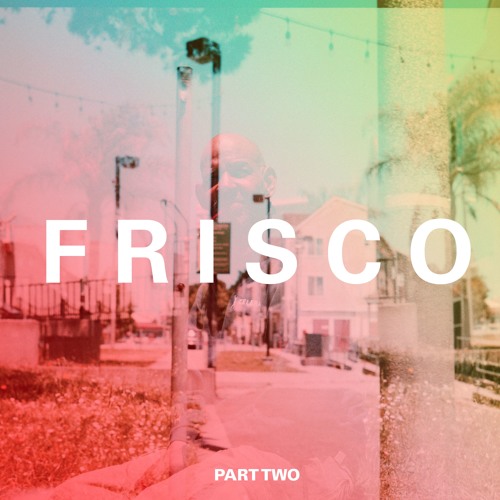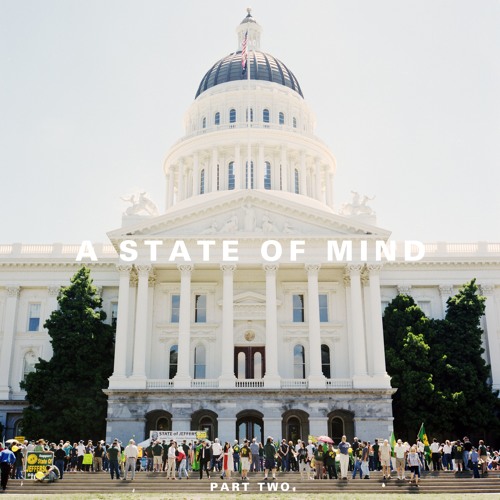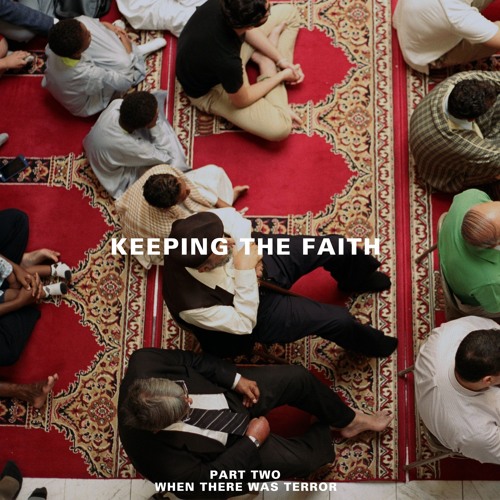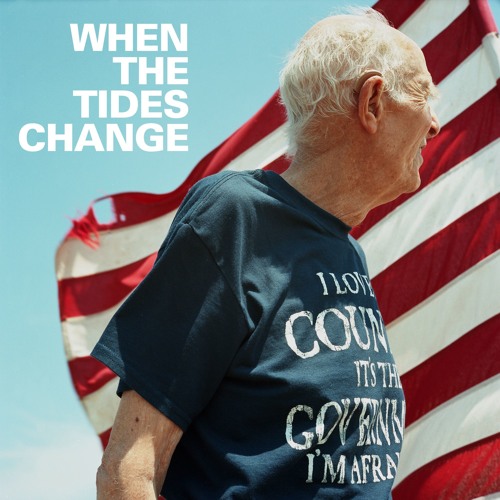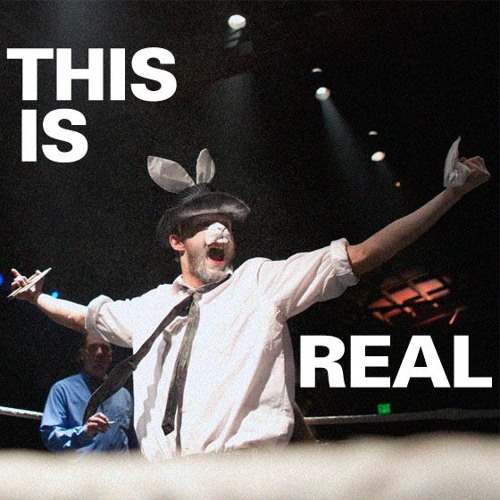The Foolish Pursuit of Life, Clarity and Context
Each episode serves as a reminder that nothing is simple and everything is complicated.
“It’s a heated field.”
The gold brooch Nancy Pelosi placed on her white blazer the night of the State of the Union Address earlier this year was a miniaturized version of the Mace of the United States House of Representatives. The actual Mace is nearly four feet tall and made of silver and ebony.
It represents the authority of the Speaker. It is a symbol.
And for so many years, Speaker Pelosi, in her own right, has been a symbol: one of power, divisiveness, and #resistance.
As she was tearing up a copy of the President’s speech that night, a San Francisco progressive activist named Shahid Buttar was firing off tweets about the shallowness of her performative politics.
He and his team of political misfits have spent months building up a campaign to challenge her seat in Congress. It is a long shot but has been billed as the second most important race to watch in this country.
Shahid is the first serious Democratic contender to Nancy Pelosi in years. Or at least, he was. This is Part II of this story.
“I’m a progressive, yeah”
The gold brooch Nancy Pelosi placed on her white blazer the night of the State of the Union Address earlier this year was a miniaturized version of the Mace of the United States House of Representatives. The actual Mace is nearly four feet tall and made of silver and ebony.
It represents the authority of the Speaker. It is a symbol.
And for so many years, Speaker Pelosi, in her own right, has been a symbol: one of power, divisiveness, and #resistance.
As she was tearing up a copy of the President’s speech that night, a San Francisco progressive activist named Shahid Buttar was firing off tweets about the shallowness of her performative politics.
He and his team of political misfits have spent months building up a campaign to challenge her seat in Congress. It is a long shot but has been billed as the second most important race to watch in this country.
Shahid is the first serious Democratic contender to Nancy Pelosi in years. Or at least, he was.
“Afghanistan and Palestine are right next to each other so that’s kind of interesting.”
Episode 029 — For the Culture: Part II
Some would have you believe that America’s history begins with its revolution.
1776.
Others have painstakingly proven why it should be moved back even earlier, closer to the date of when the early immigrants committed this country’s original sin.
1619.
It seems there’s always a choice in America, even with history. But in countries like Afghanistan, the answer has already been chiseled into stone. This is the place where countries go to die, it is a graveyard of empires.
This moniker has been cited so many times and for so long that it’s unclear who first said it. Even the Afghan community will recite this pride. But what a title like this fails to convey is that while this might be a country responsible for the many tombstones of others, it very well is also a moratorium of progress for itself, a state in perpetual arrested development.
This is also a cemetery for countless Afghans who, in more modern times, failed to see any empire rise.
“You have boys flying kites again in Afghanistan”
Episode 028 — For the Culture: Part I
Rumi is a tricky one.
When three different countries fight over a dead poet, there’s clearly some sort of insecurity behind the social posturing. Or maybe Rumi just had the foresight to avoid the whole being tied to your national identity thing? What if he thought there was just more to life? Or perhaps he had predicted a feud over his national identity would take place many centuries after his passing and just opted to avoid the whole thing as a just in case?
But not everyone is as lucky. Oh, the privilege.
And what a privilege it is to publish a story about the broader theme of culture and identity, specifically for Afghanistan’s diaspora living in the States, like those on that third-culture-wave, when Afghans from the home country are left dealing with far harsher realities.
The diaspora’s dilemma pales in comparison (if you’re that foolish to try and compare the two) to their dilemma. No less, it is still a dilemma.
With that in mind, Part I of this multi-part story dives into that nebulous question...what does it really mean to be Afghan? Really, what does it mean to be from anywhere?
“You have that look…”
Episode 027 — For the Culture: Prologue
What does it even mean to be American? It seems like we as a country wrestle with this question every four years when the circus arrives, not really learning anything from the last time the clown show was in town.
Now imagine asking that kind of question, what does it mean to be from a certain part of the world, not every four years, but in perpetuity, especially as you and your people are still trying to figure out what the culture really means. For most people that are a part of a specific diaspora, it’s a fact of life.
But If you’re an Afghan living in America, it’s a trip. There’s the obvious reason, the two countries have been at war with one another for more than 18 years. And the more complicated one where one culture is built around collectivism while the other celebrates individualism.
And to help better understand why, this story begins at an Islamophobia rally back in the Summer of 2017 in Santa Clara, Calif.
“We are all from Allah, and to Allah we return”
Episode 026 — We Too Shall Pass
In mere weeks, this country has seen COVID-19-related deaths rise past casualty totals for past wars and surprise attacks, sometimes passing those records daily. It seems like every day is filled with death.
But this isn’t the first time humanity has faced a pandemic. And this isn’t the first time society has reckoned with death. Is this a punishment? Or is God to blame?
In this episode, we turn to the past for guidance on how to deal with our present—and it too is a trip.
“Nobody wants to destroy the image of San Francisco”
Episode 025 — F R I S C O (Part III of III)
Don’t call it a comeback.
San Francisco’s black population continues to decline, hovering north of just 5 percent of the city’s total residents. And to think that there was once a time when that number was close to 15 percent.
But don’t blame it solely on gentrification, either.
“When I die, I’m dead.”
Episode 024 — F R I S C O (Part II of III)
Three horizontal stripes, red, black and green, add color to the streetlights and poles in and around the Bayview-Hunters Point neighborhood of San Francisco.
These Pan-African flags are a relatively new addition to the area and serve as reminders of what this neighborhood once was and what it now isn’t. This used to be a place where you could be Black and thrive. You could find work and own a home. Now, not so much.
In Part II of this story about the term Frisco, we try and find out what happened.
“The fans just want to know who the fuck the artist is.”
Episode 023 — F R I S C O (Part I of III)
For a place that proudly heralds slogans like #BlackLivesMatter, the homes of San Francisco house very few Black people.
What’s happened to the African-American community in San Francisco is a much more complex tale than just being pushed out by young and transient up-and-comers. Instead, it involves a deeply-rooted history spread across generations with a comet-sized impact that is still being felt today.
And for the sake of this three-part story, it begins with the very polarizing San Francisco nickname: Frisco.
In Part I, we explore why some view this term to be as offensive as the F-word and spend some time with those who simply don’t give a fuck.
“They always leave when it gets hot in the cafe.”
Episode 022 — Bougie Coffee
Since the turn of the millennium, the percentage of U.S.-based specialty coffee drinking folk, like those who have a cup everyday, has quadrupled. Travel to any major or minor city in the country, and you’ll see an offering of coffees that transcends the uniform Starbucks experience that’s on every block.
But the image that reflects after you place a mirror in front of any craft coffee company or cafe is a bit more clear, albeit unsettling. Stare at it long enough and you’ll come across matters like gentrification, the rise of the millennial-inspired yuppie wave and the old act of global economics, power dynamics and capitalism all at play.
This podcast episode explores the intricacies of coffee and attempts to answer two simple questions about one very complex drink. What makes specialty coffee special and who is it really for?
"The Devil is in the details, right?"
Episode 021 — A State of Mind, Part II of II
Living in Northern California with Mark Baird’s heavy libertarian point-of-view would likely drive most people crazy and out of the state.
But Baird wants to stay. He’d just prefer he was living in a new state, a State of Jefferson.
Feeling that he’s had no representation in how Sacramento operates, this semi-retired pilot and former buffalo rancher has spent the past several years convincing thousands of citizens along with a growing number of cities, counties and mayors to join his grass-roots movement.
In Part II of II of this story, we ask how Baird plans to form this new state and look into the financials, legality and likelihood of whether the State of Jefferson can ever live up to being more than just a state of mind.
“Mr. Statham, would you consider giving San Francisco to Hawaii?”
Episode 020 — A State of Mind, Part I
In Northern California, like proper north, there’s been a generation of folks who believe the time for America's 51st is now, and given the state of the present political landscape, it's perhaps their best shot.
Far from the reach of Sacramento, they’re living off the dream of a failed 1941 movement to split from the Golden State and live out their ideals in the name of the late president Thomas Jefferson.
The first part of this two-part story welcomes you to the State of Jefferson.
“Thank you Mr. Machine...or Ms. Machine?”
Episode 019 — Technology People
What does one make of our future—like the one 50 years from now? The answer, or rather a possible answer, has a lot to do with choice and technology. Whether we survive or go extinct is, however, another question.
“I am not the ‘Boont’ God.”
Episode 018 — What Is It All About (Part III of III)
With wave after wave of socioeconomic changes crashing into the Anderson Valley, a quiet and historically agrarian area, the lifestyle that gave rise to Boontling is quickly fading away. The fate and the future of the kitschy tongue lies solely in how the community comes to terms with market forces, the environment and, most importantly, its values.
“They’re living too fast.”
Episode 017 — What Is It All About (Part II of III)
How did a tucked-away valley 40 minutes from the Pacific Coast and the main highway all of a sudden become a major wine destination? And what toll did this have on a fractured community just reeling from the Redwood Summer days? And what does it mean for the future of the town's famous frontier language called Boontling?
“And I think it saved the day, because we didn’t have any money.”
Episode 016 — What Is It All About (Part I of III)
No place has tested the currents of change more than the Anderson Valley, a Gaza Strip-sized setting hidden in the hills of Northern California. Home to the language of Boontling, a fast fading past prose of the old frontier, the fate of the area’s kitschy tongue relies not on whether the valley will change, but how.
And why.
“I think intelligence in the universe is very rare.”
Episode 015 — We Out Here
2017, let’s start anew! Let’s just pack up, say our goodbyes and march (drive, fly or sail) to greener pastures.
But where to? Canada is cold around this time of year, Europe is in limbo, and everywhere else has spotty wifi (it doesn’t). It’s almost like no place is pure anymore; the globalized world of infinite opportunity is really just finite like everything else. This is it.
But for some folks, the answer to humanity’s woes is simply a matter of looking up at Mars.
"Any true Americans over here?"
Episode 014 — The Trump Minority
Amidst all the chaos that has been the 2016 presidential election, there is a special group of Americans fighting against the mainstream current—the Trump Minority, like actual minorities voting for Trump.
On this episode, we travel the country and talk to some of these individuals and ask why?
“And then they came for me.”
Episode 013 — Keeping the Faith: When There Was Terror [Part II of II]
When it comes to the conversation of Islam in America, it can sometimes feel like having a debate where both parties talk over one another, dive into the shallow end of the topic and leave thinking they’ve proved their points—trophies for all.
This self-perpetuating social filter bubble of sorts absolves accountability and fogs up facts—it clouds up the reality of what many Muslim communities in America have actually gone through and are going through.
No place has had it worse than Dar-al-Hijrah, a northern Virginia mosque that sits right outside the nation’s capital. First there was peace. Then there was 9/11. And then there was terror.
This is the story of how one mosque and its community has spent the past 15 years at the intersection of faith, terrorism and liberty.
“Brother, you don’t eat pork do you?”
Episode 012 — Keeping the Faith: When There Was Peace [Part I of II]
First, there is shock. Then, dread catches up with anticipation. Finally, disappointment.
New York. St. Cloud. Orlando. San Bernardino. Chattanooga. Garland. Boston. Fort Hood. Brussels. Paris. Nice. Kabul. Baghdad. Quetta. Lahore.Istanbul.
Not again.
It’s difficult to remember what life was like before any of this, when there was no YouTube or Twitter and when the Twin Towers were still part of New York City’s skyline.
There wasn’t too much cause for concern about being named Muhammad, wearing a hijab or simply practicing the faith. But times change. Now, two months away from Election Day, a presidential candidate who supports the racial profiling of Muslims and banning their entry into the country is in real contention to be the next Commander-In-Chief.
But before any of that, the vitriol and hate, the radicalization and endless news cycles, the color-coded threat levels and social media jihad, there was a simpler version of Islam in America. In this episode, we dive into what life was like for Muslims around a northern Virginia mosque just eight stoplights away from the Pentagon.
"You just go again tomorrow."
Episode 011 — When the Tides Change [Part II of II]
Stuart Vorpahl is a lifelong commercial fisherman who took pride in providing the fresh produce of the sea. Stuart liked his job. He liked it so much that when regulation and politics threatened it, he ignored the old sayings and squared up against town hall.
On the surface, it might seem as if Stuart was just really passionate about fishing, and he was. But his fight was about something bigger.
We continue the second part of Stuart Vorpahl’s story—how a commercial fisherman in the Hamptons took on the New York State over his right to fish with a 17th century document from the King of England.
“Timeout. If you see a hole, you mend it. You don’t go say I’ll go back and fix it. It don’t work.”
Episode 010 — When the Tides Change [Part I of II]
San Francisco. Portland. Los Angeles. Brooklyn. Cities like these all share a neighborhood where the gentrifying market forces of real estate, development and business opportunity are kicking out the the poor or middle class. It’s the curse of capitalism—someone has to lose and you don’t think about that when you’re dreaming.
If Stuart Vorpahl had his way, East Hampton would always remain a fishing town. But, we can’t all be winners. His community now blends into the moniker of “the Hamptons”—where the rich go to summer. With family ties that go back to 1639, Stuart has a right to claim the neighborhood has changed.
But when Stuart started talking about the king of England, it was tempting to dismiss him as a crackpot stuck in the past. Was he crazy or did he have a point?
“It’s just status.”
Episode 009 — It Ain't Easy
In pockets of America, like those in Oakland and throughout the East Bay of Northern California, the status quo of driving a vehicle is proudly rejected. Take a look at some of the rides out here and you’ll immediately get the sense that a car is more than just a car.
Who are these people and what caused them to decorate Detroit-produced relics with candy-like paint, oversized rims and a sound-system that can probably be heard from Space?
“Thy will be done. Thy will be done. I don’t know. Please, I don’t know.”
Episode 008 — It Goes Both Ways
Jessica Ripper is a white American with blonde hair, blue eyes and a home in Northern California. Yet, to many in Pakistan, she’s an Islamic-gospel musician who plays the tabla.
In the 700-year-old Sufi-singing tradition of Qawwali, she’s a female trailblazer shattering century-old glass ceilings from Sufi shrine to Sufi shrine. And everywhere else, she’s a statistical anomaly, a bizarre outlier.
Did fate direct Ripper to her path as one of the world’s only white female western qawwali players? Or was it chance and opportunity?
You be the judge.
“People want to see good overcome evil, even though that’s not always the way it plays out, that’s what they’re coming out to see.”
Episode 007 — This Is Real
Who should you be and what should you do?
Escape all the worries of life with a quick trip to Hoodslam, a wrestling outfit based in Oakland, Calif. It’s an adult wrestling show where other people make that decision for you. At least, you submit yourself to believing in everything around you, like someone getting hit in the face with a chair, seeing the ghost of Charlie Chaplin jump off the turnbuckle or a drug-addicted bunny snort lines off a championship trophy.
You don’t mind that what is fake is actually real and you begin to ask, “If I was a wrestler, who would I be?” (Answer: Super Self-Aware Man, a sure-to-be fan favorite)
This is the story of an alternative wrestling show that boasts slogans like “Fuck the Fans” and “Don’t Bring Your Kids.” Why did it start, who goes to its shows and who are its wrestlers?
“It ain’t that I don’t care, it’s that I don’t really care.”
Episode 006 — Pardon Me, Pardon Me
We live in a strange time, at least that’s what the story of the praise break reminds us.
It’s the tale of an ecstatic dance rooted deep in race, religion and American history. It traveled through centuries of oppression and made its way to present times where it’s been rejected by today’s social elites.
Maybe because it looks crazy? Or maybe it’s dismissed because it unearths some dark reality that we’re not comfortable dealing with? More in the story...
“To really answer the question, what is a question, is a very good question.”
Episode 005 — What We Can Do?
That question, like most questions, confronts, inquires, investigates and challenges. And it, by no means, is simple to define.
For this episode of Some Noise, we try and get to the bottom of questions and ask a bunch of different people, from a linguistics professor, an experienced LSD taker to a futurist: “What is a question?"
“I mean I don’t see a halo on you—even though I see a couple of horns. See that little angel and that little devil on the side. Yeah. You’re you.”
PROLOGUE: Episode 004 — The Story of Me, The Outside Perspective
This story, the Story of Me, probably won’t have a proper ending, like the kind that is comforting and reminds you that all is well in the world. It shouldn’t. Because that’s false and I’m not dead yet.
More than a month ago, the first part of this prologue aired with the intent of framing up this larger podcast project: a show about stories and the foolish pursuit of life, clarity and context. Family members, peers, friends and foes, from high school days to those that I work with were all interviewed.
Rather, this prologue wraps up with the outside perspective. What do strangers think of me? If you’re six-years-old and reading this, don’t try this at home. You shouldn’t be talking to strangers.
And then, the context. Was this project, a selfie in podcast form (possible Upworthy headline?), insightful? Did it provide any context about who I am?
Granted, it’s just the prologue, but it’s Some Noise.
“That’s just part of your mask—we all have a mask...”
PROLOGUE: Episode 003 — The Story of Me, The Work Chapter
Your work experience ultimately comes down to one thing—how you sell yourself. Which, is a lie (or like a half-truth). Achievements and accomplishments are important, but what about everything else?
For part three of this prologue—the Story of Me—I’ve reached out to co-workers, old and new and asked them for a performance review—a review that goes a bit more in-depth than the last book I read or where I want to be in five years.
Leave your feedback by endorsing me on LinkedIn, seriously, be creative.
“I felt like there was a dark piece of you that was under there.”
PROLOGUE: Episode 002 — The Story of Me, The School Years
For Part II of this four-part podcast prologue, we return to the school years. It’s a life experience most people can relate to—good or bad—in large part because of the amount of time spent.
If you’re in your mid-20s and graduated from a four-year college or university, there’s a fair chance that you’ve spent almost one-third of your life waiting for some sort of bell to ring.
(You can do the math—[(# of semesters attended *~70 days per college semester)+(# of years spent in primary education*~180 days per primary school year) / [(# of years on Earth * 365 days of the year)]])*
So for this episode, I went back to school. I’ve interviewed long-time friends and folks that I haven’t spoken to in a long-time. I reached out to professors, classmates and foes. And a high-school coach who once taught Ralph Macchio—the Karate Kid.
How much have I changed? What did people think of me? Do people even remember who I am?
*P.S. You should know I’m bad at math, so if the above formula is suspect, please tweet it out. And then share the episode with everyone you know.
“Life without context is simple”
PROLOGUE: Episode 001 — The Story of Me, Family Matters
Who do you think you are?
It’s not an easy question to answer. It shouldn’t be. But I’ve tried to get the bottom of it by starting at the top.
To introduce this podcast project—Some Noise—the foolish pursuit of life, clarity and context—I’ve decided to report on the story of me. But why? If this is going to be a show about other people, their lives and their purpose, then I think it’s only fair it start with, well, me.
Who am I? Where do I come from? What are my values? And where do they come from?
I’ve interviewed family, friends, foes and strangers over the past year and asked them the very basic question—”Who am I?” It’s a four part series about me, according to others, broken up into family, the school years, work life and the outside perspective.
